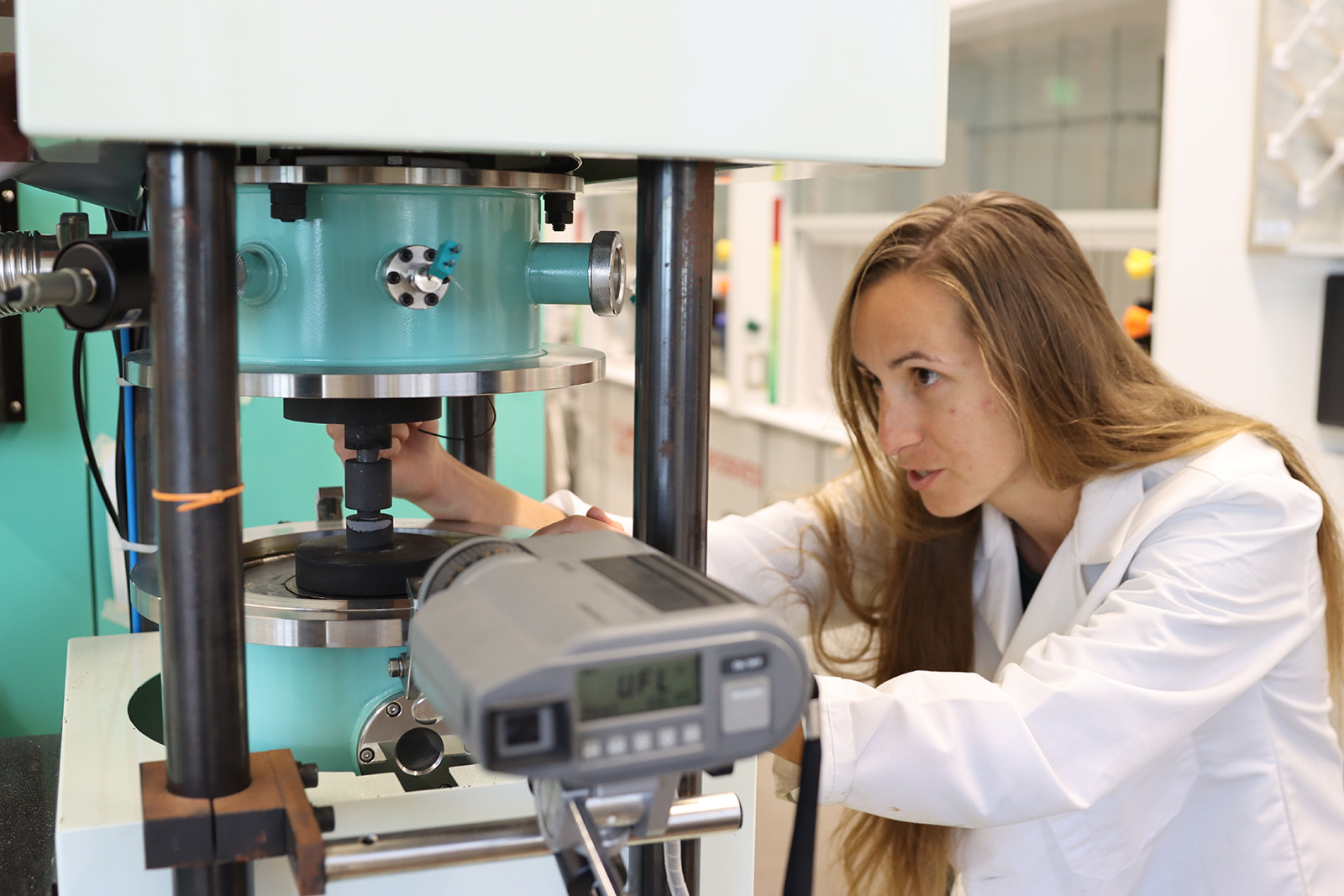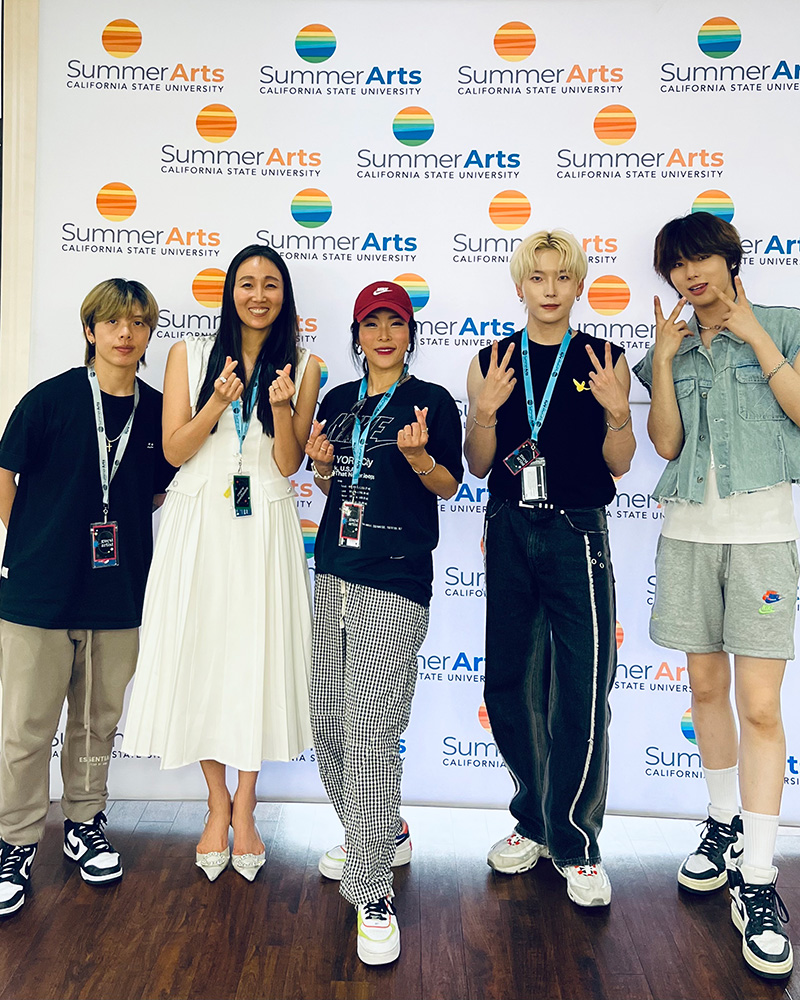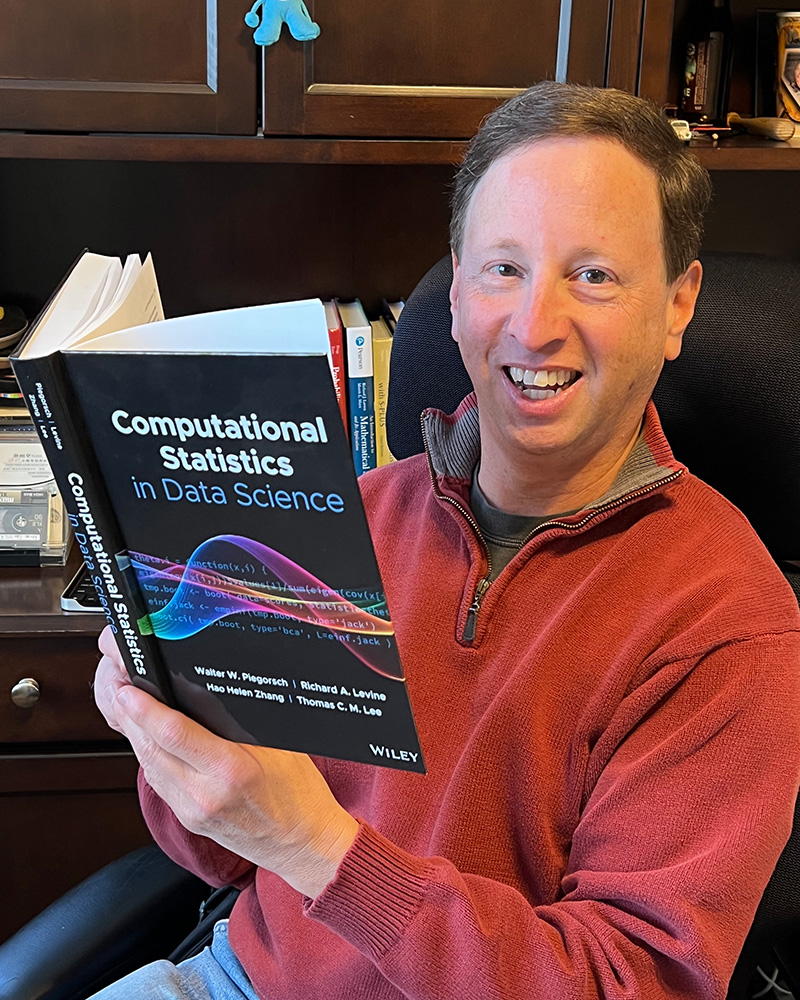Assigned Time
The purpose of the Assigned Time for Research, Scholarship and Creative Activities (RSCA) programs is to provide faculty with much-needed time to ensure the successful commencement, continuation, or completion of research, scholarship, or creative activity projects at SDSU.
Direct any questions about this program or application to DRI's faculty research support team.
Assigned Time for RSCA: Team Grant Proposal Submissions
Writing an effective grant proposal for extramural funding can take 3-6 months or even longer with larger and more complicated proposals. In order to support these important efforts at SDSU, the Division of Research and Innovation (DRI) is pleased to announce a call for applications for assigned time for research, scholarship, and creative activities focused on team grant proposal submissions for the 26/27 academic year.
The purpose of this program is to provide assigned time for a team of two to three SDSU faculty members who are working collaboratively on a grant proposal submission. DRI will fund up to three units of assigned time for each faculty member working on the collaborative proposal during the Fall 2026 or Spring 2027 semesters. Teams that are funded will also receive additional grant writing support (e.g., non-technical grant writing) from DRI.
Funding must meet a minimum level in total costs (direct + indirect) as determined by colleges (please see application components below).
All SDSU tenured and tenure-track faculty working collaboratively on a grant proposal. External collaborations are not discouraged; however, teams must be comprised of at least two SDSU faculty members. Furthermore, at least one SDSU faculty member must be the PI, Co-PI, or MPI on a multi-institution application. Teams with SDSU faculty serving as only co-investigators on a multi-institution proposal are not eligible.
Faculty who apply to the team assigned program are also eligible to apply to the individual assigned time for RSCA program.
DRI can distribute funding for assigned time but cannot allocate assigned time. Thus, Department Chairs/School Directors and College Deans will be making approvals for assigned time. All team members must consult with their respective department chair or school director to discuss their request for assigned time.
This program is intended to provide faculty with assigned time for the Fall 2026 or Spring 2027 semesters. Unfortunately, assigned time for the team cannot be granted for both semesters. Teams will be asked to submit a single team application (details below). Each team will identify a lead/contact PI for the application. We expect to fund up to 6-10 team applications depending on funding availability and the replacement cost of a given faculty member.
Identified funding source: Teams will need to identify and attach to the application a specific funding announcement or request for proposal with the due date of the application. Applications that do not include an attached funding announcement will not be reviewed. The minimum levels of total funding (direct + indirect costs) that need to be met for this program have been established by the colleges. For the purposes of applications with faculty from multiple colleges, the minimum levels of funding correspond to the lead/contact PI for the application.
College of Arts and Letters: $100k/year
College of Professional Studies and Fine Arts: $100k/year
College of Sciences: $750k/year
College of Health and Human Services: $750k/year
College of Engineering: $ 750k/year
Fowler College of Business: $100k/year
College of Education: $750k/year
SDSU Imperial Valley: $100k/year
Brief project description (up to 1000 words): Please provide a brief description of your project for which you are seeking funding. The description should also articulate how the project will advance your discipline or field of work.
Team member project roles (up to 500 words): Please provide the name of each team member as well as the team member’s department/school. Briefly describe the role of each team member on the project and how they will contribute to the writing of the grant proposal. Applications will need to identify the faculty member who will serve as the lead or contact PI for the grant proposal.
In the application, please include the semester in which each team member is requesting assigned time.
Evidence of Team Member Scholarship (up to 750 words): Applications also need to include a summary highlighting past evidence (3 years) of discipline-specific research, scholarship or creative activities directly relevant to the project and grant proposal. This could include peer-reviewed publications, book(s), grants, presentations, or juried exhibitions or performances.
Letter of Support from College Dean: Please obtain and attach a letter of support for the team’s application from the lead/contact PI’s college dean. The letter should acknowledge the funding being applied for meets the college’s minimum funding level (see above).
The Research Review Committee of the University Research Council will review these applications.
Applications will be scored using the following criteria: 1) Clarity of proposal (20%); 2) Current research/scholarship success of team (30%); 3) Strength of team (30%); and 4) Extent to which the project will contribute significantly to discipline or field of work (20%).
The Division of Research and Innovation will rank and select the most meritorious proposals based on the funds available.
Teams are expected to submit a grant proposal for extramural funding. Awardees will provide a brief final report 30 days following the submission of the grant proposal. Please indicate your planned submission date in your application. DRI will send report reminders to awardees several weeks before the report is due.
Application Portal Opens: Sept. 26, 2025
Applications Due: Nov. 10, 2025
College Reviews Due: Dec. 12, 2025
Awards Announced: By end of January
Assigned Time for RSCA: Individual Faculty
The Division of Research and Innovation (DRI) is pleased to announce a call for applications for Assigned Time for Research, Scholarship, and Creative Activities (RSCA) for the 26/27 academic year. The purpose of this program is to provide faculty with much-needed time to ensure the successful commencement, continuation, or completion of research, scholarship, or creative activity projects at SDSU. Faculty can use the assigned time for completing a book, developing a new grant proposal, collecting pilot data for use in a research proposal, developing a performance, etc. DRI will fund up to three units of assigned time for the Fall 2026 or Spring 2027 semester.
All SDSU tenured and tenure-track faculty scheduled to teach a minimum of SIX units in the Fall 2026 or a minimum of SIX units the Spring 2027 semesters. Faculty with lower teaching loads are not eligible to apply.
Faculty who apply to this assigned time program are also eligible to apply to the team assigned time for RSCA program.
Furthermore, if you are receiving assigned time, DRI can distribute funding for assigned time but cannot allocate assigned time. Thus, Department Chairs/School Directors and College Deans will be making approvals for assigned time. Applicants must consult with their department chair or school director to discuss the request for assigned time before submitting an application.
This program is intended to provide faculty with assigned time for RSCA for the Fall 2026 or Spring 2027 semesters. Unfortunately, assigned time for both semesters cannot be given. We expect to fund up to 45-50 applications depending on funding availability and the replacement cost of a given faculty member.
Applications will be accepted via the InfoReady system starting in late September.
Project Plan and Description (up to 1000 words): Please provide a description of your project. The description should include your plans for the assigned time and how the assigned time will be utilized to achieve your research, scholarship, or creative activity goals. The description should also articulate how the project will advance your discipline or field of work.
Evidence of Current Scholarship (up to 500 words): Applications also need to include a summary highlighting past evidence (3 years) of discipline-specific research, scholarship or creative activities. This could include peer-reviewed publications, book(s), grants, presentations, or juried exhibitions or performances.
Each college will first review and rank applications based on college-specific review criteria and priorities. The Division of Research and Innovation will then review the rankings provided by colleges and select the most meritorious proposals based on rankings and the funds available.
Awardees are expected to provide a brief final report following the semester in which assigned time was granted.
Reports are due January 31, 2027 for those funded for Fall 2026 and June 30th, 2027 for those funded for Spring 2027.
DRI will send report reminders via InfoReady to awardees at the end of the Fall and Spring semesters during the 26/27 academic year.
Application Portal Opens: Sept. 26, 2025
Applications Due: Nov. 10, 2025
College Reviews Due: Dec. 12, 2025
Awards Announced: By Late January
Previous Awardees: Team

Margherita Capriotti, Martia Miletic and Elisa Torresani (pictured) were awarded assigned time to apply for a National Science Foundation grant for a multi-disciplinary and sustainable research translation hub focused on new materials.
Previous Awardees: Individual

Chuyun Oh was funded to further expand K-pop dance education.

Rich Levine was funded to work on his book, Computational Statistics in Data Science.
